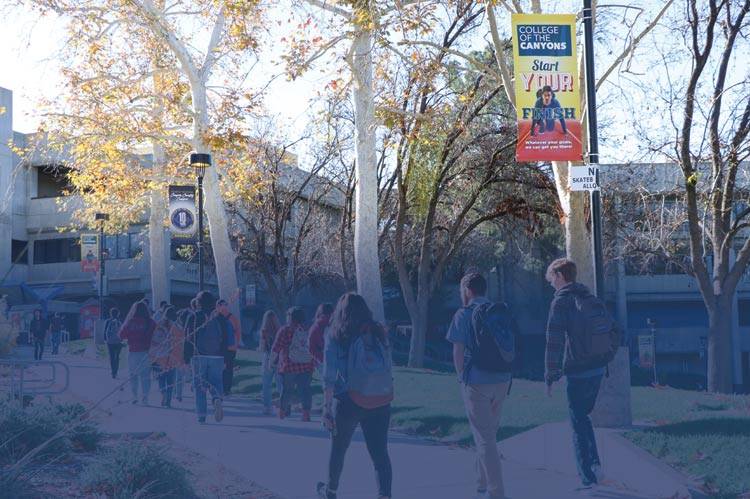Powered On : March 2024

Dealing With Data Breaches
by Michael Gunther
In our digital age, data breaches have become an unfortunate reality. With every online transaction, social media interaction, or email exchange, we leave behind traces of our personal information that can be vulnerable to cyberattacks. In recent years, high-profile breaches have highlighted the importance of safeguarding our digital identities. So, what can you do if you find yourself amidst a data breach? This was the topic of a recently held FLEX session to bring awareness to this quickly, growing threat. If you were unable to attend that session, here are some key points that you can consider, in order to safeguard yourself and your information.
Check for communications from the breached entity. The state of California requires that impacted organizations send notices to impacted individuals within a 'reasonable time frame.' The only requirement for this notification is to send it via physical letter (snail mail ). Often times, these communications contain time sensitive requirements, so make sure you keep an eye out for these notices.
Notify your bank and order replacement cards. If the data breach includes banking or credit card information, contact your bank to cancel your existing cards and replace them immediately to minimize fraudulent use of your credit cards or account numbers.
Freeze or Lock your credit. All three major credit bureaus allow you to "freeze" your credit, meaning no one (not even you) can start new accounts or use your Social Security number (SSN) without first thawing your SSN. This can be time consuming, but is a good solution if you aren't planning on making major purchases or opening new accounts any time soon. This is also helpful if the account impacted was for a minor.
Setup Fraud Alerts and monitor your credit. If you suspect your information may be at risk, you can alert potential creditors that they should verify your identity before issuing new credit in your name. Some companies may also provide additional services to alert you when your information appears online. Credit reports from the three big credit bureaus are available for free on a weekly basis.
Monitor Your Information
- Look for charges you don't recognize.
- Sign up for alerts about credit transactions (email and text).
- Dispute charges immediately.
- Balance your checking accounts to identify discrepancies and unknown charges.
- If your bank offers it, enable alerts for unusual activity.
Maintain password best practices
- Secure: Remember password best practices which recommend long, complicated passphrases unique to each account. Use a secure password manager to help keep track of user credentials. Password Manager systems, like LastPass, help simplify the organization, management, and use of your passwords.
- Change: Consider changing your passwords on vulnerable accounts to something stronger, making sure to include as many complicated combinations of upper/lower cases, symbols, and numbers as possible. Renewing your password can also prevent threat actors from further accessing your accounts.
- Authenticate: Enable 2FA (two-factor authentication) or MFA (multi-factor authentication) on any and every account where it is available. This adds another layer of security through logging in; that way, even if a threat actor has your password, they won't be able to access your account without that second step!
For more information on this topic, see [https://www.canyons.edu/administration/it/is/dealing-with-data-breaches.php]
In conclusion, while data breaches may be inevitable in our interconnected world, how we respond to them can make all the difference. By staying informed, acting swiftly, and taking proactive measures to protect our personal information, we can mitigate the impact of breaches and safeguard our digital identities. Stay vigilant, stay informed, and stay safe online.
HyFlex Classrooms
By Justin Smith
Over the past two months, an additional 20 rooms received a HyFlex AV upgrade.
If you are interested in using one, check out our guides.
If you want to see where they are located, check out the computer lab list on the intranet.
If you are still wondering what a "HyFlex Classroom" is, check out this report by ASCCC.
Committee Directory
by Lisa Sawyer
Have you ever wanted to get more involved at COC and join a committee? If so, the Committee Directory is a great place to start. By going to https://appi.canyons.edu/Apps/Directories/ on our Intranet, you can view a list of the active Committees.

From here, you can read a description of the committees, view the meeting dates, and read agendas, minutes, and other supplemental documents that were distributed at past meetings. You can even request to join a committee by clicking on the "Interested in serving on this committee?" link at the bottom of the page for each committee.
If you would like a top-level view of the dates that each committee meets, just click the "Committee Meeting Calendar" link at the top of the page. Here you will find a monthly calendar of dates and times for committee meetings.
Get involved! Join a committee today!
Academic Accommodations Center
By Scott McAfee
In 1987, President Ronald Reagan proclaimed March as National Disabilities Awareness Month, calling for greater understanding, encouragement, and opportunities to enable people with disabilities to live productively and meaningfully. This March, embracing Reagan's spirit of inclusion, the College of the Canyons' Academic Accommodations Center (AAC) and Intercultural Center (ICC) will jointly host our institution's inaugural Disability Acceptance Month. Through informational communications, faculty/staff FLEX development sessions, and educational presentations, the monthlong observance aims to promote disability awareness and acceptance campus-wide. With collaborative programming centered on celebration, consciousness-raising, and community-building, we hope to foster a climate where those with disabilities feel respected, supported, and able to thrive.
As part of Disability Acceptance Month, the College of the Canyons' Academic Accommodations Center (AAC) has organized two informative sessions. On March 13th, Access Coordinator Scott McAfee and PDF/IT Guru Stephen Burns will host an open lab on Accessible Document Creation and Remediation. Faculty and staff are invited to bring PDF and Word files to receive guidance on designing accessible materials and remediating inaccessible documents.
The cornerstone of Disability Acceptance Month will be a joint presentation on March 20th by the AAC and the ICC focusing on building greater disability awareness. The event will provide a forum for open dialogue through two panel discussions - one featuring students offering insights on living with disabilities within our college community, and another with AAC faculty and staff sharing professional perspectives. Attendees will have the chance to expand their understanding of disability experiences on campus, learn about relevant services and resources, and explore means of enhancing inclusion. Further event details, including time and location, will be announced in the coming weeks.
For more information on Disability Acceptance Month events or to inquire about accessibility accommodations and services, please contact Scott McAfee, Access Coordinator, at (661)-362-3356 or scott.mcafee@canyons.edu. Together, through awareness, education, and allyship, we can build a college environment where those with disabilities feel welcomed, included, and able to fully participate.

 My Canyons
My Canyons  Canvas
Canvas 

